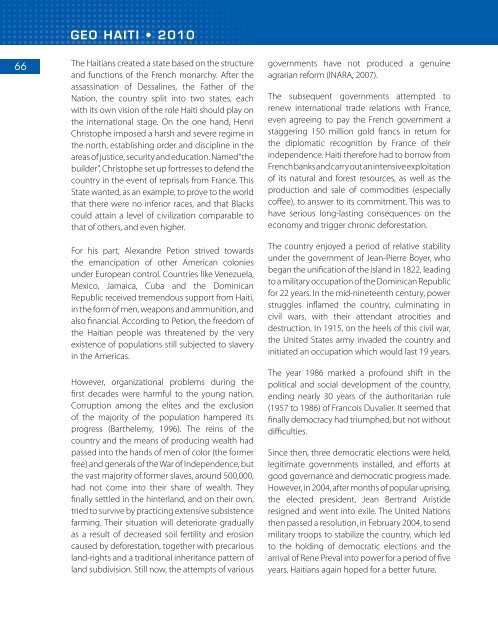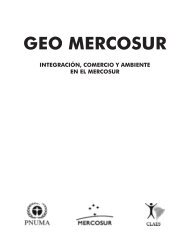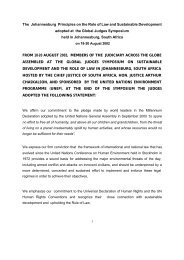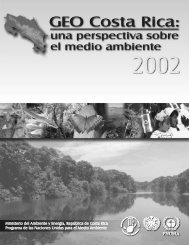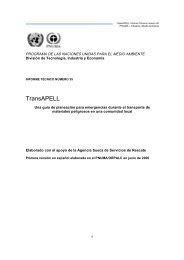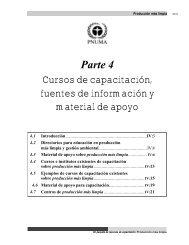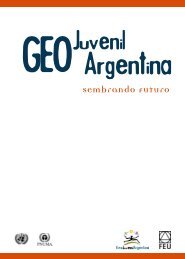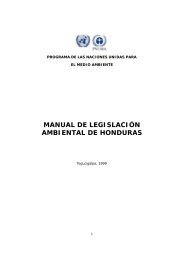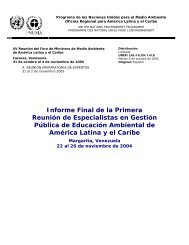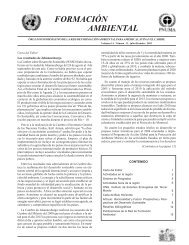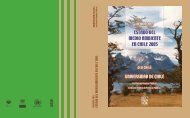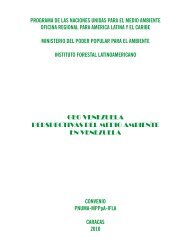GEO Haiti 2010
GEO Haiti 2010
GEO Haiti 2010
You also want an ePaper? Increase the reach of your titles
YUMPU automatically turns print PDFs into web optimized ePapers that Google loves.
<strong>GEO</strong> HAITI • <strong>2010</strong><br />
66<br />
The <strong>Haiti</strong>ans created a state based on the structure<br />
and functions of the French monarchy. After the<br />
assassination of Dessalines, the Father of the<br />
Nation, the country split into two states, each<br />
with its own vision of the role <strong>Haiti</strong> should play on<br />
the international stage. On the one hand, Henri<br />
Christophe imposed a harsh and severe regime in<br />
the north, establishing order and discipline in the<br />
areas of justice, security and education. Named “the<br />
builder”, Christophe set up fortresses to defend the<br />
country in the event of reprisals from France. This<br />
State wanted, as an example, to prove to the world<br />
that there were no inferior races, and that Blacks<br />
could attain a level of civilization comparable to<br />
that of others, and even higher.<br />
For his part, Alexandre Petion strived towards<br />
the emancipation of other American colonies<br />
under European control. Countries like Venezuela,<br />
Mexico, Jamaica, Cuba and the Dominican<br />
Republic received tremendous support from <strong>Haiti</strong>,<br />
in the form of men, weapons and ammunition, and<br />
also financial. According to Petion, the freedom of<br />
the <strong>Haiti</strong>an people was threatened by the very<br />
existence of populations still subjected to slavery<br />
in the Americas.<br />
However, organizational problems during the<br />
first decades were harmful to the young nation.<br />
Corruption among the elites and the exclusion<br />
of the majority of the population hampered its<br />
progress (Barthelemy, 1996). The reins of the<br />
country and the means of producing wealth had<br />
passed into the hands of men of color (the former<br />
free) and generals of the War of Independence, but<br />
the vast majority of former slaves, around 500,000,<br />
had not come into their share of wealth. They<br />
finally settled in the hinterland, and on their own,<br />
tried to survive by practicing extensive subsistence<br />
farming. Their situation will deteriorate gradually<br />
as a result of decreased soil fertility and erosion<br />
caused by deforestation, together with precarious<br />
land-rights and a traditional inheritance pattern of<br />
land subdivision. Still now, the attempts of various<br />
governments have not produced a genuine<br />
agrarian reform (INARA, 2007).<br />
The subsequent governments attempted to<br />
renew international trade relations with France,<br />
even agreeing to pay the French government a<br />
staggering 150 million gold francs in return for<br />
the diplomatic recognition by France of their<br />
independence. <strong>Haiti</strong> therefore had to borrow from<br />
French banks and carry out an intensive exploitation<br />
of its natural and forest resources, as well as the<br />
production and sale of commodities (especially<br />
coffee), to answer to its commitment. This was to<br />
have serious long-lasting consequences on the<br />
economy and trigger chronic deforestation.<br />
The country enjoyed a period of relative stability<br />
under the government of Jean-Pierre Boyer, who<br />
began the unification of the island in 1822, leading<br />
to a military occupation of the Dominican Republic<br />
for 22 years. In the mid-nineteenth century, power<br />
struggles inflamed the country, culminating in<br />
civil wars, with their attendant atrocities and<br />
destruction. In 1915, on the heels of this civil war,<br />
the United States army invaded the country and<br />
initiated an occupation which would last 19 years.<br />
The year 1986 marked a profound shift in the<br />
political and social development of the country,<br />
ending nearly 30 years of the authoritarian rule<br />
(1957 to 1986) of Francois Duvalier. It seemed that<br />
finally democracy had triumphed, but not without<br />
difficulties.<br />
Since then, three democratic elections were held,<br />
legitimate governments installed, and efforts at<br />
good governance and democratic progress made.<br />
However, in 2004, after months of popular uprising,<br />
the elected president, Jean Bertrand Aristide<br />
resigned and went into exile. The United Nations<br />
then passed a resolution, in February 2004, to send<br />
military troops to stabilize the country, which led<br />
to the holding of democratic elections and the<br />
arrival of Rene Preval into power for a period of five<br />
years. <strong>Haiti</strong>ans again hoped for a better future.


